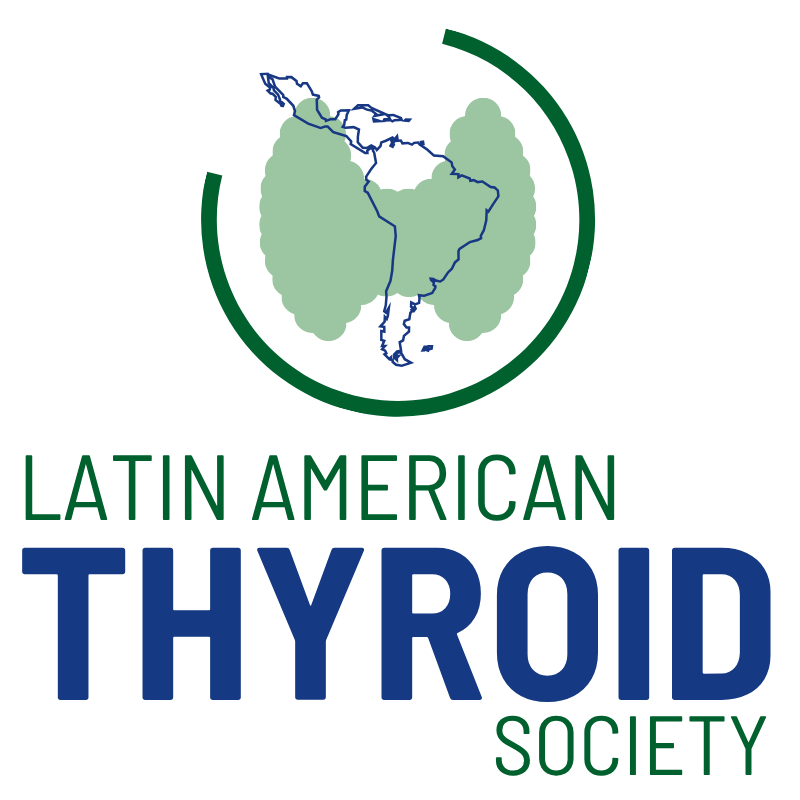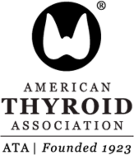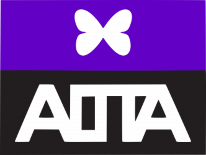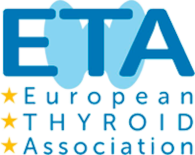LATS Senior Awards replica richard mille watch
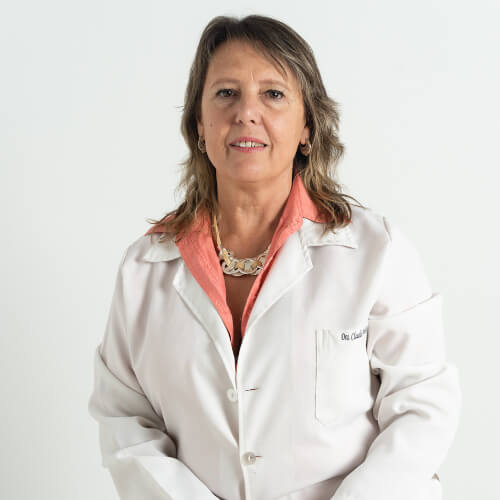
Claudia Pellizas
Dr. Pellizas has the B.S. in Biochemistry (1987) and the B.S. in Pharmacy (1991) degrees from the Faculty of Chemical Sciences, National University of Cordoba, Argentina. She received the PhD degree in Chemical Sciences from the same university (1997). At present, she is an established researcher (Category: Principal) at the National Council of Research in Science and Technology (CONICET) and a Full Professor at the Department of Clinical Biochemistry, Faculty of Chemical Sciences, National University of Cordoba.
She initiated her research career in the area of thyroid hormone action under the supervision of Dr. Aldo Coleoni, Past President of LATS and mentor of her Doctoral Thesis. Since then, she developed a keen interest in the study of different aspects of thyroid function. After postdoctoral internships, she began to lead her research group in this area. The research findings have resulted in many original papers from international scientific journals related to thyroid physiology and pathophysiology, book chapters and reviews. She has acted as a reviewer, and is also on the editorial board, of various prestigious journals. For her research, Dr. Pellizas has been granted with several research projects from national and international funds in the interaction of Thyroid Hormones and the Immune System, Thyroid Hormone Mechanisms of Action, and Basic Aspects of Thyroid Cancer, among others.
Dr. Pellizas has contributed in the training of a large number of graduated and postgraduated research fellows, and directed and codirected several doctoral thesis (PhD). As well, she has been the supervisor of several young scientific researchers from CONICET. Presently, she is the Director of the Specialist Degree in Clinical Biochemistry (Endocrinology) of the Graduate School, Faculty of Chemical Sciences, National University of Cordoba.
She has been involved in Academic Committee Assignments including Advisory Committees for Research Grants and Selection Committees for Incorporation of Researchers (CONICET; National Agency for Promotion of Science and Technology, ANPCyT; and Secretary of Science and Technology, SECyT, from several national universities). At present, she is Member of the Executive Committee of the Center of Clinical Biochemistry and Immunology (CIBICI-CONICET), Member of the Postgraduate Committee and Member of Honorable Board of Directors (HCD) of the School of Chemical Sciences, National University of Cordoba.
Dr. Pellizas is a LATS Member from 1993, and has developed many activities in the society. She has served several times as Member of the Board of Directors and Scientific Committee. She was the Secretary of the LATS Executive Committee and a Member of the Thyroid International Coordinating Committee (ICC) from 2019 to 2023. She was representative of LATS at the Program Organizing Committee (POC) for the 16th International Thyroid Congress (16th ITC), Xi’an, China, 2020; and currently she is the LATS Secretary of the POC for the 17th ITC (Brazil, 2025).
Dr. Pellizas has taken an active part in national and international Scientific Societies as member of the Council. She was President of the Society of Endocrinology and Metabolism of Cordoba (2021-2022). She has also had an outstanding participation in conferences and symposia, and as a Member of the Organizing Committee of numerous scientific events including several LATS Meetings.
Dr Pellizas has been awarded with many honors and prizes nationally and internationally. She received the Young Investigator LATS PRIZE 1997 (Basic) in the VII LATS Congress, Viña del Mar, Chile, being the first time this distinction was instituted. After that, this prize was received by several of her fellows. During the XIX LATS Congress in Curitiba, Brazil (2023), she was awarded with the LATS Prize.
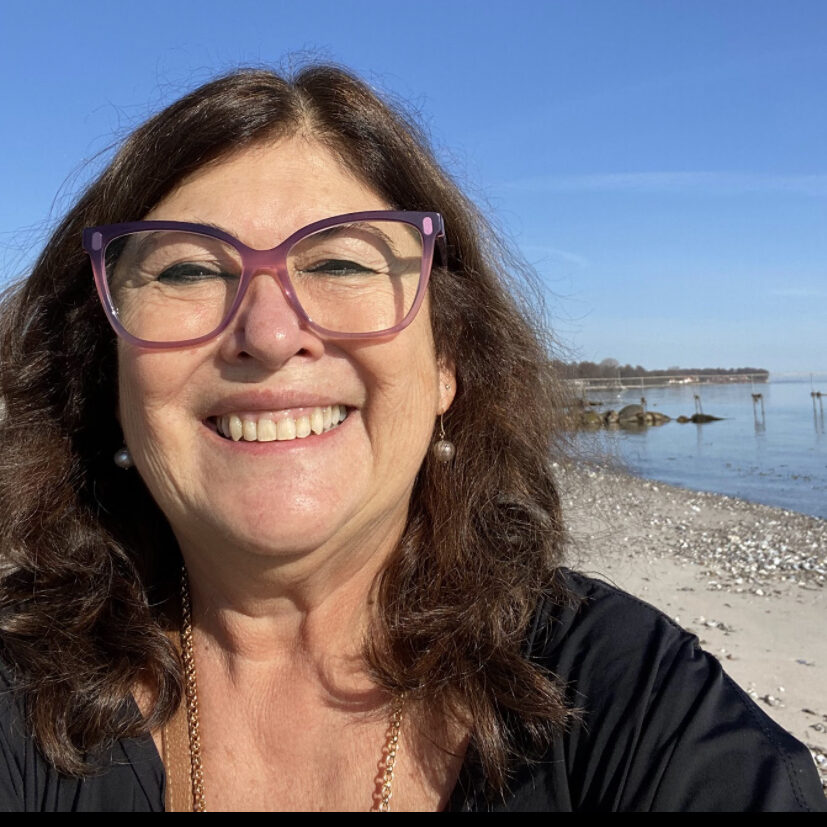
Maria Tereza Nunes
Maria Tereza Nunes, MD, PhD (Brazil)
• Full Professor, Department of Physiology and Biophysics, Institute
of Biomedical Sciences, University of Sao Paulo.
• Member of the executive committee of the Latin American
Thyroid Association (LATS).
• Coordinator of the Basic and Translational Sciences Committee at
LATS.
• Current President of the Department of Basic and Translational
Endocrinology at the Brazilian Society of Endocrinology and
Metabolism (2023-2024)
Research interest: Molecular basis of thyroid hormone actions and
its therapeutic potential; Thyroid dysfunction and Diabetes mellitus;
Endocrine disruptors and Thyroid function
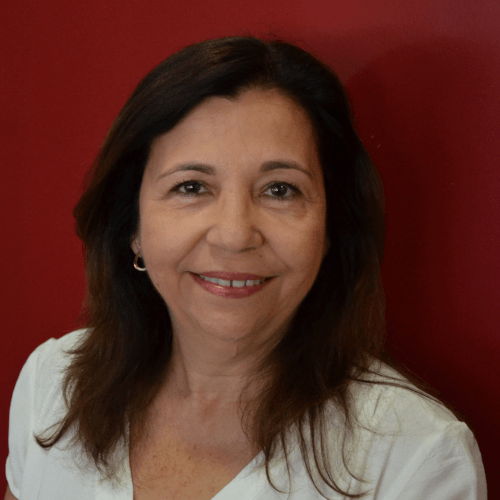
Carmen C. Pazos de Moura
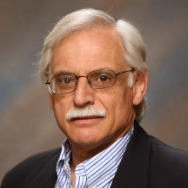
Guillermo Juvenal
Dr Juvenal is a senior researcher who has provided strong findings to the thyroid knowledge in Latin America, with worldwide impact. He published many papers in peer reviewed journals, News and Comments, Book Chapters, and Gene Bank Publications. Besides, he has mentored several Postgraduate, Master and PhD Thesis. Interestingly, he participated in several conferences and seminars in National Hospitals, Universities and Institutes, in Argentina and in many countries. His actual position is Chief Biochemistry Division, Radiobiology Department, Atomic Energy Commission, Superior Researcher at CONICET.
Worthy to note, his career also includes a long list of Academic Positions for graduate and post graduate activities at prestigious universities. Just to mention some of them, at the University of Buenos Aires, Favaloro University, National University of General San Martin, Austral University, and University of Tucuman.
Notably, he served in several positions to LATS, including the Executive and Scientific Committees many times. He was the Elected LATS President for the 2005-2007 period, and he was LATS President during 2007-2009 years. He was also the Chair of the Organizing Committee of the X LATS Meeting, at Villa Carlos Paz in 2003.
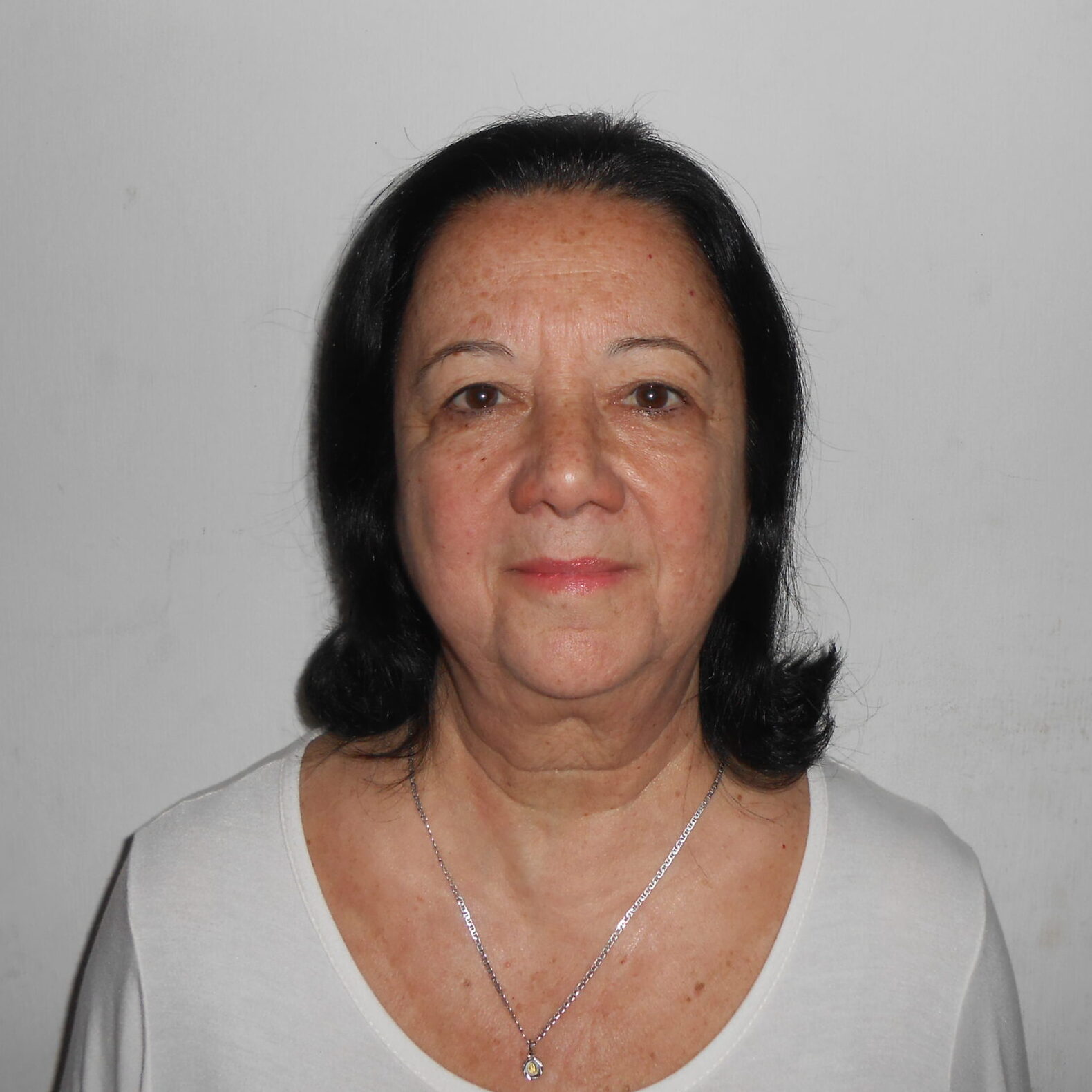
Ana Maria Masini-Repiso
Dr. Ana Maria Masini-Repiso graduated as Biochemist at the School of Chemical Sciences, National University of Cordoba (UNC), Argentina. After her graduation she was involved in research and teaching activities at the same School and was Assistant Professor at the Academic Division of Internal Medicine, National Clinical Hospital, School of Medical Sciences, UNC. She obtained her Ph.D. degree at the School of Chemical Sciences, UNC (1982) under the mentorship of Prof. Dr. Aldo H. Coleoni. Her Doctoral Thesis was focused on the interaction of biogenic amines with the thyroid function. In the early 1980’s she started the investigation of enzyme systems involved in thyroid hormone biosynthesis under the guidance of Dr. Hugo Niepomniszce, Thyroid Section, Endocrinology Division, Clinical Hospital Jose de San Martin, School of Medicine, National University of Buenos Aires (UBA), Argentina. In 1986 she was designated as Full-time Assistant Professor at the Department of Clinical Biochemistry, School of Chemical Sciences, UNC. In 1992 Dr. Masini-Repiso initiated the application of cell and molecular biology to the study of thyroid function at the Dr. Hector Targovnik’s research center, Genetics and Molecular Biology Section, School of Pharmacy and Biochemistry, UBA. In 1996 she certified as Specialist in Endocrinology, Biochemist Council, Province of Córdoba. In 1999 she was appointed as Full-time Associate Professor at the Department of Clinical Biochemistry, School of Chemical Sciences, UNC and in 2005 was promoted to the position of full professor of Endocrinology at this Department. Dr. Masini-Repiso was elected to the Academy of Medical Sciences of Cordoba, Argentina, in 2015. At present she joins the Board of Directors of this Institution.
Dr. Masini-Repiso has published over 50 original papers and reviews in peer-reviewed journals and is author of book chapters. In addition to her work on thyroid research, she has been involved in the formation of human resources for scientific investigation. She mentored post-graduate (Ph.D.) students and supervised postdoctoral fellows and Associate researchers from the National Scientific and Technical Research Council (CONICET), Argentine. She actively participated in several committees of post-graduated programs. Dr. Masini-Repiso was coordinator and later became chair of the Council of Specialties, Post-graduate School, School of Chemical Sciences, UNC. Currently she is Member of the Committee for Specialist Degree in Clinical Biochemistry (Area Endocrinology) at this School. Dr. Masini-Repiso was Chief of the Department of Clinical Biochemistry, School of Chemical Sciences, UNC, and elected member of the Board of Directors of this Department for many times. She has served as a member of jury in Doctoral Thesis and Professor contests at the UNC and other universities from Argentina. She belongs to the Advisory Committee for Certification of Specialist in Endocrinology, Biochemist Council, Province of Córdoba. Her early research interests were the mechanisms involved in the regulation of enzymes related to thyroid hormone biosynthesis. At present her research group is focused in the understanding of the molecular interactions of thyroid cancer-driving oncogenes with membrane receptor signaling and in the identification of genetic defects associated with congenital hypothyroidism.
Dr. Masini-Repiso has an active role in scientific and medical associations. In LATS she was President (2013-2015), chief of Scientific Committee (2011-2013) and Secretary (2007-2011). She is member of LATS Executive Council (2017-2019) and served in this office many times before. Dr. Masini-Repiso was member of the Board of Directors and the Scientific Committee of the Argentine Federation of Endocrine Societies (FASEN). In the Society of Endocrinology and Metabolism of Cordoba (SEMCO) she served as President and Vice-president and was elected as member of the Board of Directors several times. Dr. Masini-Repiso has received research grants from the National Agency for Scientific and Technological Promotion (FONCYT), CONICET, Secretary of Science and Technology (UNC), Cordoba Research Council (CONICOR) and Cordoba Science Agency. Among numerous awards, Dr. Masini-Repiso received prizes to the outstanding Scientific Research (CONICOR) and Research and Academic performance (UNC). Her PhD students have been awarded with the LATS Young Investigator Prize and have received best paper awards (SEMCO, FASEN).
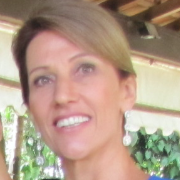
Janete Maria Cerutti
Janete Maria Cerutti, Ph.D, is currently Associate Professor of Genetics, Head of Genetic Bases of Thyroid Tumor Laboratory and Chief of Genetics Division in the Department of Morphology and Genetics, Universidade Federal de São Paulo (UNIFESP). Dr. Cerutti received her Biological degree at the Universidade de Passo Fundo, Rio Grande do Sul, Brazil. In 1987 she moved to Campinas, São Paulo, where she did obtained her M.Sc. in Genetics and Molecular Biology at the Universidade de Campinas (UNICAMP) (1988-1991). In 1991 she applied for a PhD-sandwich program at the Dipartimento di Biologia e Patologia Cellulare e Molecolare, Facoltà di Medicina e Chirurgia di Napoli, Università degli Studi di Napoli “Federico II, under the supervision of Professor Alfredo Fusco. She obtained her Ph.D. degree in Genetics and Molecular Biology at UNICAMP in 1995, after presenting her thesis focused on the role of c-MYC in the pathogenesis of human thyroid carcinoma cell lines. In 1996, she moved to São Paulo, where she continued her studies on thyroid cancer at the Endocrinology Division, UNIFESP, as a Post-doc research fellow under the supervision of Rui MB Maciel (1996-2001). In 2002-2003 she was Visiting Assistant Professor of Pathology, Duke University School of Medicine. In 2003 she returned from USA and was appointed as Assistant Professor of Genetics, Division of Genetics, Department of Morphology and Genetics, UNIFESP. In 2005, she was appointed as Assistant Professor in the Department of Neurosurgery at Johns Hopkins School of Medicine. In 2009 she was appointed as Livre-Docente (Habillitation) and established a research laboratory at UNIFESP.
Dr. Cerutti has published over 70 original papers and reviews in peer-reviewed top-ranked journals. Besides her contribution for thyroid research, she was Graduate Program Director in Structural and Functional Biology at UNIFESP (2009-2014), supervised Post-Doc and mentored over 30 post-graduate (Ph.D. and M.Sc.) and 20 undergraduate students. Dr. Cerutti has also an active role in the Brazilian Endocrine Society (Sociedade Brasileira de Endocrinologia e Metabologia), being elected member of the board of Directors of the Thyroid Chapter (2013-2016). She is an associate member of LATS (since 1996). She was recipient of the LATS Young Investigator Award in 2001. In LATS, Dr. Cerutti has served as an elected-member of the Executive (since 2007) and Scientific Committee (since 2005). She is also a corresponding member of American Thyroid Association (since 2005) and Endocrine Society (2008-2010) and a member of The Brazilian Genetic Society (since 2009).
Dr. Cerutti has awarded by grants from national (CNPq and FAPESP) agencies and was a co-investigator on an R21-R33-funded study (NIH). She is a research investigator of the Brazilian National Research Council (CNPq) (since 2003). Her current major interests include identification of new biomarkers for the preoperative diagnosis of thyroid nodule. She also coordinates several studies on the molecular and clinical aspects of the differentiated and medullary thyroid carcinomas.
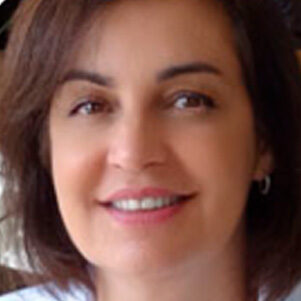
Ana Luiza Maia
Ana Luiza Maia, MD, PhD, received her Medical degree at the Universidade Federal da Bahia, Salvador, Brazil. Soon after her graduation (1986), she moved to Ribeirão Preto, São Paulo, where she did her residency training and clinical fellowship in Endocrinology (1987-89), at the Hospital de Clínicas da Faculdade de Medicina, University of São Paulo. After obtained her Master of Science at the same Institution (1991), she applied for a PhD-sandwich program at the Harvard Medical School, Boston, USA, under the supervision of P Reed Larsen. Dr. Maia obtained her PhD degree in 1994, after presenting her thesis focused on the molecular mechanisms of type 1 deiodinase-catalyzed thyroid hormone deiodination, but continued her studies at the Thyroid Division, Brigham and Women’s Hospital, Boston, as a post-doc research fellow until 1995, when she returned to Brazil to join the Endocrinology Division at the Medical School, Universidade Federal do Rio Grande do Sul (UFRGS), as Associated Professor of Medicine (1997). At that time, as chief of the Thyroid Section, Hospital de Clinicas de Porto Alegre (HCPA), she set up a molecular laboratory and implemented the genetic diagnosis of Multiple Endocrine Neoplasia Type 2, thenceforth considered as a reference Center to diagnostic and treatment of medullary thyroid carcinoma. In 2003, she returned to Boston for a 2-year sabbatical, as a Visiting Associate Professor at Harvard Medical School, where she studied the role of deiodinases in human T3 production.
Dr. Maia has published over 100 original papers and reviews in peer-reviewed top-ranked journals (Curriculum Lattes). Besides her contribution for thyroid research, she has been very active in graduate and post-graduated programs, working in several committees and supervising post-graduate (PhD and MSc) and undergraduate students. Dr. Maia has also an active role at the Brazilian Endocrine Society, being the past president of the Thyroid Department (2002-2005) and elected member of the board of Directors for several times. She has coordinated the Brazilian guidelines of Diagnosis and Treatment of Thyroid Nodules and Differentiated Carcinomas (2007), Hyperthyroidism (2013), and Medullary Thyroid Carcinomas (2014). In LATS, Dr. Maia has served several times as an elected-member of the Executive and Scientific Committee and was a LATS representative in the Program Organizing Committee (POC) of the 13th International Thyroid Congress (2001-05). She is also a member of American Thyroid Association (ATA) and Endocrine Society, where she has served as member of the Annual Meeting Steering Committee (2015-17).
Dr. Maia is currently a Full Professor of Medicine (UFRGS) and chief of the Thyroid Unit, HCPA. She continues interested in basic and clinical aspects of the thyroid hormone physiology, particularly on the role of deiodinases in human diseases. She also coordinates several studies on the molecular and clinical aspects of medullary and differentiated thyroid carcinomas. Among the numerous awards received include Award is Knoll – Young Investigator Award Prof. Thales Martins, LATS-Young Investigator Prize and Fogarty International Research Collaboration Award (FIRCA). She has also awarded by grants from national (PRONEX, CNPq, FAPERGS, FIFE/HCPA) and international (NIH) agencies. She is a research investigator (1995- ) and has recently served as an-elected member and Coordinator of the Advisory Committee on Medicine (2012-15) on the Brazilian National Research Council (CNPq).
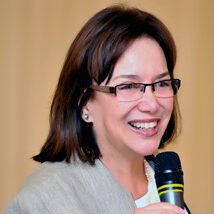
Laura S. Ward
Dr. Laura S. Ward is an active member of this society since 1987 and her curriculum vitae demonstrates her brilliant career and important contributions to the study of the thyroid. Dr. Ward has a solid formation as endocrinologist, acquired in prestigious Brazilian institutions and complemented by fellowships in international centers of excellence. Her academic activity, highly qualified and copious, with more than 110 peer-reviewed manuscripts published in international journals; 41 book chapters besides the edition of 3 books, including an international publication, reflects this formation. She also supervised a large series of graduated, under graduated and post-doctoral students including 21 Master and 10 Doctoral Thesis fellows. Dr. Ward has an active participation in the societies that promote the interest in thyroidology, is a proficient reviser and board member of international endocrinology journals and had a series of major committee assignments.
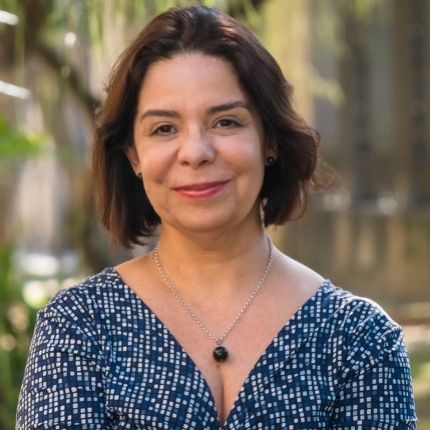
Denise Pires de Carvalho
Denise Pires de Carvalho, MD, PhD is currently an Associate Professor in the Program of Physiology and Cellular Biophysics within the Carlos Chagas Filho Biophysics Institute at Federal University of Rio de Janeiro, Rio de Janeiro, Brazil. She earned her MD degree from Federal University of Rio de Janeiro (1982-87), where she also completed Master of Science (1990) and PhD (1994) degrees in Physiology, under the supervision of Prof. Doris Rosenthal. Since then she has been interested in the understanding of molecular aspects of thyroid hormone biosynthesis and new therapeutic approaches for advanced thyroid cancer. In 2000, she established a research laboratory, doing several important contributions to thyroid research and collaborative work with thyroid researchers around the world (France, United States of America and Italy), including post-doctoral fellowships in Jacques Pommier’s laboratory in Paris, France (1995) and in Roberto Di Lauro’s laboratory in Naples, Italy (2006). Dr Carvalho has participated in thyroid cancer related research and the understanding of thyroid dysfunction in several pathophysiological conditions, such as energy imbalance and estrogen deficiency. She presents more than 70 publications, including the seminal paper describing the first family with two dyshormonogenetic siblings with goiter related to hydrogen peroxide generation defect in 2001. Besides her contributions to thyroid research, Dr Carvalho has been very active in administrative tasks at the University, being the Coordinator of the Physiology Graduate Program from 2001-2005 and the Director of the Biophysics Institute from 2010 to 2013. She has also actively participated in educational programs at the Federal University of Rio de Janeiro, working in several committees and supervising until now 29 thesis (14 PhD and 15 MSc) and more than 30 undergraduate students in thyroid gland research. In addition, she has played an active role in the Brazilian Endocrine Society (Sociedade Brasileira de Endocrinologia e Metabologia-SBEM), being the past president of the Thyroid Chapter (2005-2007). In LATS, Dr Carvalho has served as a member of the Executive and Scientific Committee since 1999 and was a LATS representative in the Program Organizing Committee (POC) of the 14th International Thyroid Congress held in Paris in 2010. She is also a member of American Thyroid Association (ATA), The American Physiological Society (APS), the Brazilian Physiological Society (SBFis) and the Brazilian Biochemistry and Molecular Biology Society (SBBq).
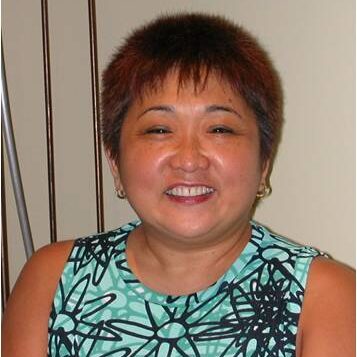
Edna Teruko Kimura
Edna Teruko Kimura, MD, PhD is currently a full professor in the Department of Cell & Developmental Biology within the Institute of Biomedical Science at Univesirty of São Paulo, São Paulo, Brazil. She earned her MD degree from University of Sao Paulo Medical School of Ribeirão Preto (1976-80), where she also completed a Residency in Pediatrics (1981-83). She was a Clinical Research Fellow in Pediatrics Endocrinology at the Chiba University, Japan, working mainly in screening and follow-up of patients with congenital hypothyroidism (1983-85). After finishing her fellowship in Japan, Dr Kimura has joined the Endocrinology Division of Escola Paulista de Medicina – UNIFESP, where she completed a Master of Science (1991) and a PhD (2004) in Clinical Endocrinology under the supervision of Prof. Rui M B Maciel. During the PhD program she also has trained in the Laboratory of Experimental Endocrinology at Bern University mentored by Prof Hugo Studer. Since then she has been interested in the understanding of new aspects of thyroid growth, particularly the role of IGFs and TGF. In 1994, she moved to Institute of Biomedical Sciences at the University of Sao Paulo, as an Assistant Professor of the Department of Cell and Developmental Biology, establishing a research laboratory, doing several important contributions to thyroid research and collaborative work with thyroid researchers around the world (Chicago, Cordoba, Nagasaki, and Madrid) including a post-doctoral fellowship in James Fagin’s laboratory in Cincinnatti, USA. Dr Kimura has participated in thyroid cancer related research with interest in oncogene, growth factor, iodine and microRNA. She presents around 50 publications, including the seminal paper describing the role of BRAF mutation in thyroid cancer in 2003. Besides her contributions to thyroid research, Dr Kimura has been very active in educational programs at the University of Sao Paulo, working in several committees and supervising until now 12 PhD students and more than 20 undergraduate students in thyroid gland research. In addition, she has an active role in the Brazilian Endocrinology (Sociedade Brasileira de Endocrinologia e Metabologia – SBEM), being currently the president of the Thyroid Chapter and Editor-in-Chief of the Arquivos Brasileiros de Endocrinologia & Metabologia (Brazilian Archives of Endocrinology and Metabolism), the indexed journal of the Society. In LATS, Dr Kimura has been served as a member of the Executive and Scientific Committee since 1997 and was a LATS representative in the Program Organizing Committee (POC) of the 13th International Thyroid Congress held in Buenos Aires in 2005. She is also a corresponding member of American Thyroid Association (ATA) and served ATA as a member of Bylaws Committee (2005-2007), a member of Brazilian Cell Biology Society (SBBC) and American Association for Cancer Research (AACR).
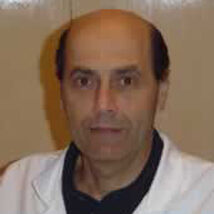
Mário Vaisman
Mário Vaisman obtained a M.D. in 1980 from the Federal University of Rio de Janeiro, and a Ph. D. in 1986 at the same institution with a dissertation on the changes in peripheral subpopulations of T lymphocytes and electron microscopy induced by antithyroid drugs in patients with Graves’ disease. He has been working as a professor at the Federal University of Rio de Janeiro since 1978, first as Assistant ,and then, in 1980 he became Associate Professor . Since 2005 he was nominated Full Professor of Endocrinology. At the University, Dr Vaisman has participated in many functions such as: Chief of Internal Medicine Department and Director of Post Graduate Programs. During his academic life, Dr Vaisman has mentored 20 PhD theses and 30 MD dissertations, as well as participated in undergraduate courses every year. Since 1989 he has received a research grant from the National Council of Research, Ministry of Science and Technology. During this time he was an enabler for many grants and provided funds for equipments, supplies and salaries for graduate students. Currently the main areas of interest are: cancer, autoimmunity and subclinical thyroid disease. He has published around 100 papers and Edited 6 books and was invited to write more than 15 chapters in different books. Dr Vaisman is afilliated to the Brazilian Society of Endocrinology and Metabolism, Latin American Thyroid Society and American Association of Clinical Endocrinologists. He also collaborates with many Journals as a member of the Editorial Committee- Growth Hormone and IGF research, Arquivos Brasileiros de Endocrinologia e Metabologia, and as a reviewer- Brazilian Journal of Pathology and Laboratory Medicine, Brazilian Journal of Medical and Biological.
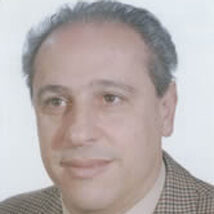
Héctor Rubén Harach
Born in Salta, Argentina, on 15 August 1954. Degrees: M.D. (1978) and PhD (2004), University of Buenos Aires. Medical Practitioner (Full Registration), General Medical Council, U.K. (Nr 4355395). Specialist in Histopathology, General Medical Council, U.K., under the European Specialist Medical Qualifications Order 1995 (Nr 4355395). Present Positions: Consultant Pathologist, Pathology Service, Hospital “Dr. A. Oñativia”, Salta, Argentina, Expert Pathologist for the WHO International Classification of Endocrine Tumors, and Fellow of the Royal College of Pathologists, U.K. Previous Positions: Fellow from various International Centers such as the Universities of Helsinki (Director: Dr. KO Franssila), Zürich (Professor C.E. Hedinger), Stockholm (Dr. T. Lówhagen), Uppsala (Prof. L. Grimelius) and Wales (Prof. Sir Dillwyn Williams). Lecturer in Pathology at the University of Wales College of Medicine, Lecturer in Clinical Pathology, Addenbrooke’s Hospital, University of Cambridge, U.K., Consultant Histopathologist and Cytopathologist St. Bartholomew’s Hospital, London, U.K., Honorary Senior Lecturer, Department of Morbid Anatomy, Royal London Hospital, U.K., and Reference Pathologist, Genetic Cancer Susceptibility Unit, WHO International Agency for Research on Cancer, Lyon, France. Publications: over 100 in journals and 10 book chapters, including 4 for the WHO International Classification of Thyroid Tumors (2004). His research works relate to: 1) clinicopathological aspects of familial non-medullary thyroid carcinoma, including the original recognition of distinct morphological features for familial adenomatous polyposis associated thyroid carcinoma; 2) the recognition of some variants of thyroid neoplasia such as the glandular variant of medullary (C cell) thyroid carcinoma and the spindle cell tumor with mucous cysts (originally regarded by him as being of thymic in origin) and lately re-coined by others as SETTLE (spindle epithelal tumor with thymic like elements); 3) the first documentation on the prevalence, anatomical position and histochemical features of the human ultimobranchial thyroid solid cell nests; 4) the recognition of a second kind of human thyroid follicle – the ultimobranchial related thyroid follicle with acid mucin; 5) implications of the ultimobranchial system to thyroid tumor histogenesis (eg, a proposed origin of mucoepidermoid carcinoma from ultimobranchial solid cell nests); 6) epidemiological studies on thyroid papillary microcarcinoma, effect of salt iodination on the morphology of thyroid cancers and thyroiditis, incidence and morphology of childhood thyroid cancer from the England and Wales Children Cancer Registry, and radiation associated tumors after Chernobyl; 7) and many other topics on clinical pathology and cytology of the thyroid nodule in general and thyroid neoplasia and thyroiditis in particular.
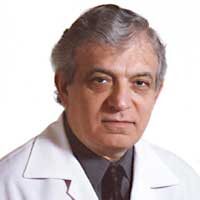
H. Romaldini
João Hamilton Romaldini, born in São Caetano do Sul, São Paulo, Brazil obtained his M.D. degree in 1968 from “Escola Paulista de Medicina, Universidade Federal de São Paulo”. He was Resident in Endocrinology at “Hospital do Servidor Público Estadual de São Paulo” from 1969 to 1971. He moved to Pisa, Italy where he became a Research Fellow at “Istituto di Endocrinologia, Universita degli Studi di Pisa”, under his advisor Prof. Aldo Pinchera, from 1971 to 1973, where he developed his studies on thyroid immunology. His main aim was to improve an assay in vitro, for the Long-Acting Thyroid Stimulator (LATS) looking for the thyroid antigens for the LATS and the effects of LATS into follicles of isolated thyroid cells and the binding of radioiodinated thyrotropin to reassociated cells. He got his PhD from “Escola Paulista de Medicina” in 1974 and then he set up a thyroid research laboratory inside the Hospital Servidor Público Estadual where he became a pioneer by developing the TSH radioimmunoassay and developed an assay to determine the LATS-activity in the human thyroid tissue. Another meaningful study was related to the etiopathogeny of autonomous thyroid nodules. He also collaborated closely with the Department of Pharmacology, “Instituto de Ciências Biomédicas, University of São Paulo” and produced several studies related to ontogenesis of androgen receptors in hypothyroid and hyperthyroid rats as well as studies about thyroid-testis-pituitary axis. Dr. Romaldini dedicated a long-term effort to the study the immunopathology of Graves´ Disease and the influence of antithyroid drugs in the treatment of hyperthyroid patients. He is one of the world leaders concerning this subject and has published regularly in this area. Recently, his works have described the correlation between the subclinical thyroid diseases with dislipidemia and cardiovascular diseases. He is the author of about 70 original papers and book chapters. Dr. Romaldini was the LATS-General Secretary from 1983 to 1991, Vice-President from 1991 to 1993, President from1993 to 1995. He was also the President of “Sociedade Brasileira de Endocrinologia e Metabologia ” from 1999 to 2000 He has been a Professor of Endocrinology at “Faculdade de Ciências Médicas” at Pontifícia Universidade Católica de Campinas, Campinas, São Paulo and Chairman of Postgraduate Course at “Hospital Servidor Público Estadual, IAMSPE”. He had also been the director of Endocrinology Service in that Hospital for 17 years. Several of his former resident students are involved in the research work of thyroid.
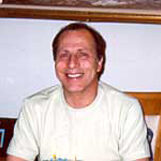
Gregorio Chazenbalk
Dr. Gregorio Chazenbalk was born in Buenos Aires Aires , Argentina. He obtained his Ph.D.in Chemistry from the University of Buenos Aires, in 1985. His thesis was based on the thyroid autoregulation at molecular levels. In recognition of this work he was awarded by the Argentine Endocrinology Foundation and the Argentine Society of Endocrinology and Metabolism. In 1986, Dr Chazenbalk joined Dr Basil Rapoport’s laboratory at the Veterans’ Administration Medical Center in San Francisco, California. As a postdoctoral fellow, he was involved in the molecular cloning of human thyroid peroxidase (TPO). In further studies, he demonstrated that TSH regulates messenger RNA levels of different genes, including TPO, in cultured thyroid cells. In 1993, he and his colleagues cloned the entire repertoire of human TPO autoantibodies for the first time. Dr Chazenbalk’s work was also focused in the subunit structure of the human thyrotropin receptor (TSHR), primary antigen of Graves’ disease. A major finding from these studies was that TSHR contains not one, but two, cleavages sites. One of the Dr Chazenbalk ‘s major goals was to engineer the human TSHR A subunit as a highly immunoreactive secreted protein. After 5 years of persisting work, he was able to accomplish this difficult task. The availability of this protein allowed further studies showing its crucial role in either the initiation or amplification of the autoimmune response in Graves’ disease. In summary, Dr Chazenbalk’s work has followed a consistent theme over many years. His strength has been to combine his backgrounds in basic biochemistry with molecular endocrinology. For all his contribution in the field of thyroid regulation and autoimmunity as well as his close mentorship and guidance of many investigators, Dr Chazenbalk received the SLAT Prize in 2001. At this time, Dr Chazenbalk is Associate Professor of Medicine at the University of California, Los Angeles. He works in the Autoimmune Disease Unit, Division of Endocrinology and Metabolism at Cedars-Sinai Medical Center in Los Angeles.
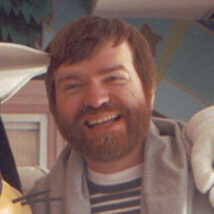
Antonio C. Bianco
Antonio C. Bianco ,obtained a M.D. in 1983 from the Santa Casa School of Medicine, São Paulo, and a Ph.D. in 1988, in Human Physiology from the University of São Paulo, Brazil, with a dissertation on the molecular basis of thermogenic effects of thyroid hormones. Following a post-doctoral fellowship in the Department of Medicine, Brigham and Women’s Hospital and Harvard Medical School, Boston, he joined the faculty and directed a thyroid research laboratory at the University of Sao Paulo. For the next ten years Dr. Bianco mentored 15 graduate students and various undergraduate students in investigations of thyroid physiology, energy homeostasis and thermogenesis. During this time he was the PI of various research grants that provided funds for equipments, supplies and salaries for the graduate students. Dr. Bianco became Associate Professor of Physiology at the University of São Paulo in 1992 and, in 1998, Visiting Associate Professor of Medicine at Brigham and Women’s Hospital in Boston.

Eduardo A. Pretell
Em Breve
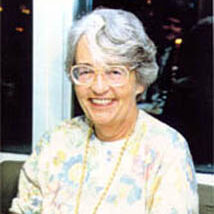
Doris Rosenthal
Doris Rosenthal, from Rio de Janeiro, Brazil, is Professor at the Federal University of Rio de Janeiro, Brazil, and head of the Laboratory of Endocrine at the Instituto de Biofísica Carlos Chagas Filho. Dr Rosenthal graduated in Medicine in 1957 at the University of Rio de Janeiro, Brazil. In the sixties Dr. Rosenthal was one of the pioneers in the usage of radioisotopes in Medicine and Endocrinology at Rio de Janeiro. She obtained her M.D.Sc. degree in 1975 at Federal University of Rio de Janeiro, studying thyroid hormone kinetic parameters in =B3hot=B2 thyroid nodules. She did her post-doctoral training at the Unit de Recherches sur la Glande Thyroide et la Regulation Hormonale under Mira Pavlovic-Hournac (1978). As a Professor at the Federal University and of the of the Post-Graduate Program in Endocrinology at the Pontifícia University of Rio de Janeiro, Dr Rosenthal has been very active as advisor of many under-graduate and post-graduate students, and has worked to improve the understanding of thyroid gland function and regulation, and introduced new techniques for their study in Brazil. The majority of her students are now Professors in the areas of Physiology and Endocrinology. Dr Rosenthal is the author of more than 60 original papers and book-chapters and the advisor of 28 thesis (22 M.Sc. and 6 Ph.D.) in the areas of peripheral metabolism of thyroid hormones, methods of hormone measurements, thyroid hormone biosynthesis, genesis of goiter, and others. Dr Rosenthal has served in several committees in the University, the Brazilian Societies of Endocrinology and Metabolism, of Physiology, of Biophysics, the Latin American Thyroid Society, Brazilian Research Council, Rio de Janeiro State Research Council, Rio Grande do Sul State Research Council and Pernambuco State Research Council.
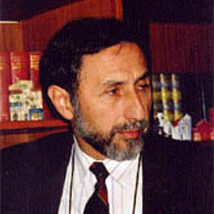
J. Enrique Silva
Dr. J. Enrique Silva, was born in Santiago, Chile. He studied Medicine at the University of Chile School of Medicine from where he graduated summa cum laude in 1968. He was awarded a Honorary Scholarship to start his training and enter the Academic Career at that University. He chose to start his training in Internal Medicine and Experimental Medicine. During his medical student years he performed several independent research projects on the regulation of TSH secretion. His research for entering the Academic Career was on iodine deficiency. His thesis “Mechanisms of Adaptation to Iodine Deficiency in Man and Rat” was approved with maximal distinction. Several publications in national and US journals resulted from this work. In 1974, Dr. Silva joined Dr. Jack H. Oppenheimer’s laboratory at Montefiore Hospital, a teaching Hospital of Albert Einstein College of Medicine where he completed his training in clinical and basic endocrinology. His most important contribution during this period was the finding that T3 induces a conformational change in the receptor as assessed by a change in the global charge opposite to that predicted by the binding of T3. The receptor, partially purified by Dr. Silva shifted its migration in ionic exchange columns, which was later used by others to purify the recombinant receptor to homogeneity. At the end of this period, Dr. Silva joined Dr. Larsen, at Harvard Medical School, in Boston, where they did seminal work on the regulation of TSH secretion by T4 and T3. They demonstrated that a substantial fraction of the T3 bound to the receptor in the anterior pituitary is produced locally from T4, by a 5’deiodinating reaction insensitive to PTU. The enzyme involved in this reaction turned out to be the Type II 5’deiodinase later characterized by this group and recently cloned. The concept of local generation of T3 (from T4), increasing the receptor occupancy above the level predicted by plasma T3 was later demonstrated to occur in the brain and it is now widely accepted. At the end of 1977, Dr. Silva returned to his native Chile with the hopes of setting up a research program in his Alma Mater. During these years his research revolved around the demonstration that the mechanisms described in the rat pituitary operated as well in humans. Indirect evidence that this was the case was obtained from detailed analysis of TSH secretion in iodine deficiency and in a fortuitous case of Tg deficiency with lack of T4 synthesis. In 1980, Dr. Silva decided to return to the USA, where he joined Dr. Larsen as Assistant Professor at Harvard Medical School. During the early 80s were also members of this group Michael Kaplan, Theo Visser (in sabbatical leave) and Jack Leonard. This laboratory demonstrated for the first time that T4 to T3 conversion occurs via two distinct pathways catalyzed respectively by Type I and Type II 5’deiodinases (5’D-I and 5’D-II, respectively). Dr. Silva characterized the generation of T3 in the brain in vivo and how is affected by hypothyroidism. It was demonstrated that not only fractional conversion of T4 to T3 is increased in hypothyroxinemia (due to the increase in 5’D-II), but also that T3 degradation or disposal by the brain is reduced in this condition. In 1983, Dr. Silva was awarded the Van Meter Prize of the American Thyroid Association for his contributions to the understanding of the responses of the body to iodine deficiency. His lecture was entitled “Response to iodine deficiency and hypothyroidism. Can we speak about T3 homeostasis?” . In subsequent years, Dr. Silva focused on the finding that the 5’D-II in BAT was stimulated by cold and noradrenergic mechanisms. In work done with Dr. Antonio Bianco, he demonstrated that the generation of T3 resulting from the adrenergic activation of 5’D-II was essential for the response to cold of rats. Since then, most of the research efforts of his group, first at Brigham and Women’s Hospital, then at Beth Israel Hospital and lastly in Montreal, at McGill University (Jewish General Hospital), has been co thyroid hormone stimulates thermogenesis using brown adipose tissue as a model. For all this work, for his fostering of young investigators from latin america and Spain, and his frequent presence at latin american scientific meetings and courses, he received in 1995 the LATS Prize. His talk, delivered at the XI International Thyroid Congress in Toronto, was entitle “Thyroid Hormone-Adrenergic Interactions: A Glimpse Through the Brown Adipose Tissue”. In his address, Dr. Silva acknowledged the fortune of having as mentors Jack Oppenheimer and Reed Larsen as well as the chance of working with talented colleagues and fellows, a good number of them from south america. Dr. Silva is Professor of Medicine and Physiology at McGill University and Director of the Division of Endocrinology and Metabolism at the Jewish General Hospital, one of the teaching hospitals of this University. In addition to the above mentioned awards, Dr. Silva’s contributions to the scientific community have recognized through numerous invited chapters and review articles, invitations to participate in national and international symposia, by sitting at various US, Canadian and international scientific and review committees and by being in the editorial board of several scientific journals. He has over 110 publications.
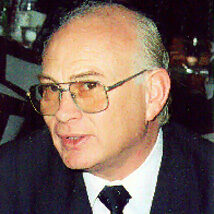
Hugo Niepomniszcze
Hugo Niepomniszcze, was born in Buenos Aires, Argentina, on April 27, 1942. He graduated as MD from the University of Buenos Aires, School of Medicine in 1966 and received his PhD degree in 1975 at the same university. Since the early beginning of his medical career, while he was a medical student, demonstrated a remarkable interest in thyroid research, specifically on thyroid peroxidase (TPO). In 1964 he developed his first research work under the guidance of Dr. Noé Altschuler, showing that isoniazid e is an inhibitor of TPO. In the same year they published the first review article entirely dedicated to TPO (Rev. Argent. Endocrinol. Metab. 10:208, 1964). After obtaining the MD degree, he was awarded with a research fellowship from the Argentine Nationa l Council of Scientific and Technical Investigations (CONICET). He remained as a fellow of CONICET and the Atomic Energy Commission until 1970, when he moved to The University of Chicago as a USPHS International Postdoctoral Research Fellow (N.I.H.), work ing on Biosynthesis of Thyroid Hormones with Dr. Leslie J. DeGroot. He has successfuly completed his traineeship in Endocrinology and Thyroid Research in 1972 and returned to Buenos Aires as an established investigator of CONICET. Since 1974 he is the Head of the Thyroid Section of the Hospital de Clínicas “José de San Martín” of the University of Buenos Aires. In 1981 he has obtained the position of Chief of the Service of Endocrinology of the “Churruca-Visca” Medical Complex, and he became Adjunt Profes sor of Physiology at the School of Medicine of the University of Buenos Aires in 1986. Dr. Niepomniszcze has devoted his medical career mainly to the thyroid gland. During his more than three decades of thyroid research he spent the first part to basic and experimental investigations . The second period was shared between basic and clinical research, whereas he mostly dedicated the last decade to clinical investigations. The first paper on human thyroid peroxidase, reported in the world literature, was published by Dr. Niepomniszcze and his colleagues in 1969 (Acta endocrinol. [Kbh] 62:193, 1969). They also published the first direct evidences that TPO may be abnormal in congenital goiters due to impairment of iodine organification: a) apoenzyme-prosthetic group defect (New Engl. J. Med. 285:1394, 1971 & JCEM 34:607, 1972); b) deficient peroxidase defect (JCEM 36:347,1973). The inborn errors of thyroid hormonogenesis were the main field of his experimental research. He has performed studies in Chicago and Buenos Aires on new forms of TPO defects (Metabolism 24:57, 1975 & Acta endocrinol . [Kbh] 93:25, 1980), thyroglobulin alterations (Clin. endocrinol. [Oxford] 6:27, 1977), Pendred Syndrome (Acta endocrinol. [Kbh] 89:70, 1978), H2O2 generating abnormalities (JCEM 65:344, 1987) and iodide trapping defects (Acta endocrinol. [Kbh] 103:34, 1 983). He was working, also, on pharmacology of drugs affecting thyroid metabolism: isoniazide, PAS, amiodarone, phenylbutazone, minocycline, etc.; whereas he and his group had carried out clinical studies on endemic goiter, thyroid nodules, autoimmune th yroiditis, Graves’ disease, subclinical hypothyroidism, Plummer disease, thyroid cancer, TRH-TSH, and some interdisciplinary projects with dermatology, rheumatology, neurology, gastroenterology, osteology, psychology, diabetology, neumonology and androlog y. Some of these published papers are listed: JCEM 34:822, 1972; Acta endocrinol. [Kbh] 85:781, 1977; Acta endocrinol. [Kbh] 94:64, 1980; JCEM 61:28, 1985; Thyroidol. Clin. Exp. 5:25, 1993; Thyroid 5:283, 1995. He belongs to the Board of Directors of the Post-graduate Career of Endocrinology Specialty at the School of Medicine-University of Buenos Aires. He has authored more than 90 full published papers and is member of several scientific and medical associa tions: Latin American Thyroid Society, American Thyroid Association, Sociedad Argentina de Endocrinología y Metabolismo, Honorary Member of the Chilean Society of Endocrinology, American Association for the Advancement of Science, etc. He is International Advisory Board of the Ciba Foundation and Scientific Director and CEO of Buenos Aires Daim, Inc. At present, he is the Vicepresident of the Argentine Society of Endocrinology and Metabolism and the President Elect of the Latin American Thyroid Society. He also performed as member of International Committees for Nomenclature, Classifications and Def initions of thyroid disorders (PAHO Sc. Publ. Nos. 292 & 502; JCEM 73:1380, 1991 and Thyroid 2:235, 1992). Dr. Niepomniszcze was awarded with the following prizes: 1968: Prize “Sociedad Argentina de Endocrinología y Metabolismo” 1978: “Abbott” Prize of the Latin American Thyroid Society 1978: First Prize of Medicine of the Centenary of the University Hospital, School of Medicine, University of Buenos Aires. 1985: Prize “Allemand de Gunche” of the National Academy of Medicine of Buenos Aires. 1990: Distinguished Service Award of the Complejo Médico [PFA] “Churruca-Visca”, Buenos Aires. 1993: LATS AWARD 1995: Prize to the Scientific Production of the University of Buenos Aires.
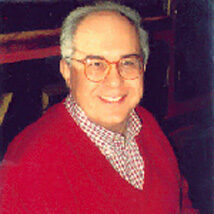
Rui M. B. Maciel
Rui M. B. Maciel, a native of Sao Paulo, Brazil, is Professor of Medicine and Director, Division of Endocrinology, Department of Medicine, Escola Paulista de Medicina, Universidade Federal de Sao Paulo, Brazil. Dr. Maciel graduated in Medicine in 1970 at Escola Paulista de Medicina, Universidade Federal de Sao Paulo, where he also did his Residency in Internal Medicine and Endocrinology (1971-74) and obtained M.Sc. degree in Immunology (1976) and Ph.D. in Endocrinology (1982). Post-doctoral training at University of California at Los Angeles under Inder Chopra (1976-78). Visiting Lecturer on Medicine, Harvard Medical School, Beth Israel Hospital, with Sidney Ingbar (1986-1987). Dr. Maciel is the author of more than 130 original papers and book-chapters and the advisor of 20 thesis (10 M.Sc. and 10 Ph.D.) in the areas of peripheral metabolism of thyroid hormones, methods of hormone measurements and thyroid cell growth. Dr. Maciel was Editor in Chief (1991-94) of “Arquivos Brasileiros de Endocrinologia e Metabologia”, the official journal of the Brazilian Society of Endocrinology, and has served in several committees of the Brazilian Society of Endocrinology, Latin American Thyroid Society (Secretary-Treasurer 1990-1995), Brazilian Research Council, Sao Paulo State Research Council, Universidade Federal de Sao Paulo and University of Sao Paulo, and is a member of the American Thyroid Association, European Thyroid Association and Endocrine Society. Follows 10 selected papers: 1. RMB Maciel, SS Miki, W Nicolau, NF Mendes. “Peripheral blood T and B lymphocytes, in vitro stimulation with phytohemagglutinin, and sensitization with 2,4 di-nitro-chlorobenzene in Graves’ disease”. J Clin Endocrinol Metab 1976; 42: 583-7; 2. F Geola, IJ Chopra, DH Solomon, RMB Maciel. “Metabolic clearence and production rates of 3′,5′-diiodothyronine and 3,3′-diiodothyronine in man. J Clin Endocrinol Metab 1979; 48: 297-301; 3. RMB Maciel, Y Ozawa, IJ Chopra. “Subcellular localization of T4 and reverse T3 outer ring monodesiodase activities”. Endocrinology 1979; 104: 365-71; 4. Y Ozawa, RMB Maciel, IJ Chopra, DH Solomon, GN Beall. “Relationship among immunoglobulin markers in Graves’ disease”. J Clin Endocrinol Metab 1979; 48: 381-7; 5. RMB Maciel, IJ Chopra, Y Ozawa, F Geola, DH Solomon. ” A radioimmunoassay for measurement of 3,5-diiodothyronine”. J Clin Endocrinol Metab 1979; 49: 399-405; 6. AC Bianco, MT Nunes, NS Hell, RMB Maciel. “The role of glucocorticoids in the stress-induced reduction of extra-thyroidal 3,5,3′-triiodothyronine generation in rats”. Endocrinology 1987; 120: 1033-8; 7. T Misaki, RMB Maciel, D Tramontano, AC Moses, A Lombardi, SH Ingbar. “Supranormal stimulation of DNA synthesis in FRTL-5 cells by serum from patientes with active acromegaly”. J Clin Endocrinol Metab 1988; 66: 1227-32; 8. RMB Maciel, AC Moses, G Villone, D Tramontano, SH Ingbar. “Demonstration of the production and physiological role of insulin-like growth factor II in rat thyroid follicular cells in culture”. J Clin Invest 1988; 82: 1546-53; 19. VN Alberti, LC Takita, MIS Mesquita, S Percario, RMB Maciel. “Immunohistochemical demonstration of insulin-like growth factor I in normal and pathological human pituitary gland. Pathol Res Pract 1991; 187: 541-2; 10. RMB Maciel, ET Kimura, MH Takahashi, MHC Lopes, MIS Mesquita, AC Moses, VN Alberti. “Insulin-like growth factor I in human thyroid tissue: specific localization by immunohistochemistry and in situ hybridization. Endocr Pathol 1995; 6: 207-15.

Mario Pisarev
Mario Alberto Pisarev was born in Buenos Aires on March 17, 1941. Present Positions: Head, Dept. of Radiobiology, Argentine Atomic Energy Commission, Professor of Human Biochemistry, Univ. of Buenos Aires Sch. of Medicine; Principal established Investigator from the Arg. Natl. Res. Council (CONICET). Academic Degrees: Physician (1963) and Doctor in Medicine (1974), Univ.Buenos Aires. Licensed for the use of radioisotopes (CNEA, 1964). Previous Positions: Head, Nuclear Biochem.Div., Arg.Atomic Energy Commission (CNEA); Asstnt.Professor of Biochemistry, Univ.Buenos Aires; Visiting Scientist: Yale Univ. Sch of Medicine, Ludwig Maximilan Univ., Munich, NIDDKD (NIH) Bethesda, USA; Visiting Professor Univ. Libre de Bruxelles, Belgium; Res Asstnt Professor of Medicine, State Univ. of New York at Buffalo, USA; Res. Associate, Thyroid Study Unit, The Univ. of Chicago and Clinical Res. Ctr., MIT, USA. Fellow from the CONICET, the NIH, the John S Guggenheim Mem.Fdn. and the H & B Buswell Fdn. Publications: 83 in journals and 9 in books. Prizes and Awards: Arg. Endocrine Society (twice); Arg Fdn on Endocrinology; LATS- Xth Internat Thyroid Congress; Member ICCIDD in Argentina and Venezuela. Referee of articles; Endocrinology, J.Endocrinol. Investig.; Acta Physiol. Pharm. Lat.amer., etc. Scientific Societies: President of: Arg. Endocrine Society and Arg. federat.of Endocrine Societies; Latinamerican Thyroid Society; Vice-President: Arg Society of Biology. Corresponding Member: American and European Thyroid Associations. Founder of LATS. Director of 24 fellowships in Argentina and of 5 approved Doctoral Thesis. Member of Jury for Doctoral Thesis and Professors in Argentina. Member of the Board on Medical Sciences of the Argentine Natl. Res.Council (CONICET); Executive Secretary on Pharmacology, State Secretary on Science & Technology.

Eduardo Gaitan
Dr. Eduardo Gaitan, is Professor of Medicine, University of Mississipi Medical School and Chief, Endocrinology Section at the Jackson VA Medical Center, Jackson, Mississipi, USA. He graduated MD “Summa Cum Laude” in 1954, and his Specialty is Endocrinology and Internal Medicine. He has been Chairman of the Public Health Committee of the American Thyroid Association, Member of the Executive and Central Committees of the International Endocrine Society, Member of the Editorial Board of Risk Analysis, Member of the Medical Advisory Council of the Thyroid Foundation of America, President of the Latin American Thyroid Society and President of the Colombian Endocrine Society. He is Senior Advisor to the International Council for Control of Iodine Deficiency Disorders (ICCIDD), and until recently, Research Program Specialist for Environmental Agents of the Department of Veterans Affairs. He was honored with Direct Election to Fellowship in the American College of Physicians (1990) and Exceptional Qualifications by the Department ov Veterans Affairs (1993). Dr. Gaitan has worked and published extensively in the area of Goitrogens and other Environmental and Host Factors in Thyroid Disorders. He is Editor of two (2) books on Thyroidology and Environmental Goitrogenesis, and he received the International Ache Prize Award of the Latin American Thyroid Society (1985), the Distinguished Alumnus Award (1988) and the Excellence Award in Medicine by the Alumni Association of the National University of Colombia (1989), the National Prize of Science of Colombia (1976), the First Colombian Scientific Prize in Medicine (1972) and Corresponding Membership in the European Thyroid Association (since 1973) in recognition of his important contributions in neurohypophyseal and thyroid research.

Aldo Coleoni
Dr. Aldo Coleoni, born in Cordoba, Argentina on November 18, 1938. Present position: Full Professor, Department of Clinical Biochemistry, School of Chemical Sciences at the Natl. University of Cordoba. Established Investigator from the Argentine Natl. Res. Council (CONICET). Academic Degrees: Biochemist in 1964 and Dr in Biochemistry in 1970, Institute of Chemical Sciences. Previous positions: Research Associate in the Thyroid Study Unit, The University of Chicago, USA (1976/78; 86/87). Director of the Postgraduate Dept. and Chief of the Dept. of Clinical Biochemistry (School of Chemical Sciences). Member of the Assesment Committee of the University of Sao Paulo (Brazil). Member of the Board on Medical Sciences of the Secretary of Sciences and Technology (Natl. Univ. of Cordoba);of the Research Council of Sciences and Technology (CONICOR) and the Natl. Agency for the Promotion of Science and Technology (FONCYT). Honorary Member of the Public Health Ministery of Cordoba for the implementation of the Screening for Neonatal Hypothyroidism. Publication: 36 in international journal and book chapters. Prizes and awards: First Prize in Medicine (Univ. of Buenos Aires); First prize of the Society of Endocrinology and Metabolism of Cordoba (twice); Prize to the Scientific Production (CONICOR) and to the Academic Excellence (Natl. Univ. of Cordoba) (twice); LATS award. Member of the Executive Committee of the Society of Biology of Cordoba, and LATS. ; member of Organizing Program Committees in local, national and international scientific congresses. Director of fellowships and 4 approved Doctoral Thesis. Member of the Jury for Doctoral Thesis and Professor contest in Argertina.

Geraldo A. Medeiros-Neto
Dr. Geraldo Medeiros Neto, is Associate Professor of Endocrinology at the University of São Paulo Medicla School and chief of the Thyroid Laboratory of the Hospital das Clinicas of the University of São Paulo Medicla School, São Paulo, Brazil. Dr. Medeiros-Neto obtained its training at the University of São Paulo Medicla School, São Paulo, Brazil, receiving the M.D. degree in 1959. After three years of internship and residence, he was granted the James Picker Foundation Clinical and Research Fellowship at the Thyroid Unit of the Massachusetts General Hospital, Harvard Medical School, under the guidance of John B. Stanbury. He stayed at this position for two years (1963-1964) returning to São Paulo in 1965 when he founded the Thyroid Laboratory at the Hospital das Clínicas. During his fellowship, he became interested in hereditary familial thyroid disorders and continued to work in this field in his own laboratory in São Paulo. For the past 30 years, an impressive number of families with dyshormonogenesis have been studied at the Thyroid Laboratory in São Paulo. Seven doctoral theses and many papers emerged from these studies. Dr. Medeiros-Neto is the author of more than 200 original papers in international medical journals and has been the editor, author, or co-author of ten books. He also authored 22 chapters in international Brazilian textbooks. Dr. Medeiros-Neto is the founder of the Latin American Thyroid Society and served as its first president. He is a member of the Brazilian Endocrine Society, Endocrine Society (USA), American Thyroid Association, European Thyroid Association, Sociedade Medica de Chile and Societé Française d’Endocrinologie. He was elected to the “Academia de Medicina” in São Paulo and is an honorary member of the Academia de “Medicina in Santiago”, Chile. He received many awards for his work including the international LATS award in 1980 and the Paul Starr Award, American Thyroid Association, 1996. Dr. Medeiros-Neto is on the Editorial Board of several national and international medical journals and is a member of the executive Committee of the International Council for Control of Iodine Deficiency Disorders (ICCIDD). His current major research interests include the molecular pathogenesis of inherited disorders of the thyroid system, iodide deficiency disorders and their prevention, and clinical investigation of thyroid disease.
